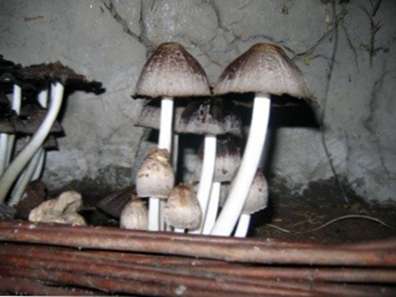
Mushroom compost makes an excellent addition to the garden soil. Organic gardening with mushroom compost can be accomplished in many ways and offers many benefits to the garden.
Contents
What is mushroom compost?
Mushroom compost is a type of slow release organic fertilizer. Compost is made by mushroom growers using organic materials such as hay, straw, corn cobs and husks, as well as poultry or horse manure. Because the mushroom growth process varies slightly from grower to grower, mushroom compost recipes may differ here and there. For example, additional materials such as gypsum, peat moss, lime, soybean meal and various other organic products can be added to the compost.
Once the fungus is mixed into the compost, it is steam pasteurized to kill weed seeds and any other harmful agents. A mixed layer of sphagnum moss and lime is placed on top of the pile for the mushrooms to grow.
Mushroom composting takes about three to four weeks to process, during which time it is closely monitored by mushroom growers to maintain proper temperatures. Once the process is complete, the leftover compost is disposed of and sold as fertilizer.
Mushroom Compost for Gardening
Mushroom compost is usually sold in bags labeled as SMC or SMS (spent mushroom compost or spent mushroom substrate). It is available at many garden centers or through landscape supply companies. Mushroom compost is also available for purchase by the truckload or bushel, depending on its use in the garden.
There are several uses for mushroom compost. It can be used as a soil amendment for lawns, gardens and potted plants. However, this product should be used with caution due to its high levels of soluble salt. These salt levels can kill germinating seeds, harm seedlings and cause damage to salt-sensitive plants such as azaleas and rhododendrons.
Benefits of mushroom compost
The beneficial uses of mushroom compost, however, far outweigh the drawback of high salt levels. This type of compost is reasonably inexpensive. It enriches the soil and provides nutrients for healthy plant growth. Mushroom compost also increases the water-holding capacity of the soil, which reduces the need for water.
Mushroom compost is suitable for most garden plants. It supports various types of plant growth, from fruits and vegetables to herbs and flowers. For best results when gardening organically with mushroom compost, mix well with garden soil before planting or let it sit over winter and apply in the spring.

